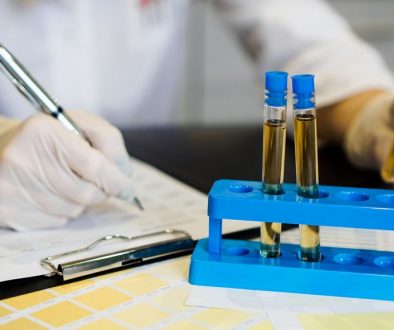For decades, Americans were told a simple story: fat is bad, cholesterol clogs your arteries, and eating butter or red meat will send you straight toward heart disease. So we replaced butter with margarine, eggs with cereal, and whole foods with “low-fat” processed snacks, all in the name of health.
But what if that story was never true? What if decades of official dietary advice were driven more by politics, profit, and flawed science than by solid evidence?
That’s exactly what Dr. Nina Teicholz, an investigative journalist and author of the groundbreaking book The Big Fat Surprise: Why Butter, Meat and Cheese Belong in a Healthy Diet, uncovered. Her decade-long research revealed that the war on fat was built on biased science and industry influence, while the real causes of modern metabolic disease, processed foods, sugar, and industrial oils, were ignored.
How Industry & Institutions Drove the Low-Fat Myth
Teicholz traces how a single unproven theory, that saturated fat raises cholesterol and causes heart disease, became the foundation of public-health policy.
“The low-cholesterol diet became national policy not only because the American Heart Association and nutritionists enthusiastically endorsed it … but even more importantly because the vast power of the U.S. government swung behind it.” — Teicholz
The American Heart Association, U.S. Department of Agriculture, and food companies joined forces to promote the “low-fat” ideal. This alliance created what Teicholz calls a “nutritional-industrial complex.”
Food manufacturers reformulated products to match the new advice: butter became margarine, lard was replaced by Crisco, and full-fat dairy vanished from shelves. The message was simple, eat less fat, live longer.
But behind the scenes, dissenting scientists were marginalized.
“When an unscientific fear of dietary fat pervades the culture so much that researchers will not allow research into high-fat diets for fear of ‘harming people,’ science cannot self-correct.” — Teicholz
The food industry profited enormously, while Americans grew sicker.
“The food world is particularly prey to corruption, because so much money is made on food and so much depends on talk and especially the opinions of experts.” — Teicholz
The Unintended Health Crisis: Low-Fat Diets, High-Carb Disease
As natural fats were vilified, consumers turned to “low-fat” processed foods loaded with sugar and refined carbs. Vegetable oils and trans fats filled the void once occupied by butter and tallow.
“Our diets have changed radically within the past fifty years, with great and often harmful effects on our health.” — Teicholz
The results were disastrous:
- Obesity and diabetes soared, even as fat consumption dropped.
- Heart-disease rates plateaued, rather than plummeting.
- Inflammation and metabolic dysfunction became the new epidemic.
Teicholz notes that participants in many low-fat trials lowered their cholesterol, but not their mortality.
“Even though their cholesterol inevitably goes down, their risk of death does not.” — Teicholz
In other words, the low-fat revolution didn’t just fail, it helped fuel the chronic-disease crisis we face today.
Why Natural Fats & Cholesterol Are Essential
While conventional wisdom told us to fear fat, biology tells a different story: fats are foundational to life.
Cell Membranes & Structure
Every cell in the human body is built from lipids, cholesterol and phospholipids that form the flexible membranes around cells and organelles. Without healthy fats, cell signalling, transport, and repair falter.
Hormone Production & Metabolism
Cholesterol is the raw material for cortisol, testosterone, estrogen, progesterone, and vitamin D. Healthy fats also regulate metabolism, fertility, and stress response.
Brain & Nerve Function
About 60 percent of the brain is fat. Cholesterol and omega-3 fatty acids are vital for memory, mood stability, and cognitive function.
Nutrient Absorption
Vitamins A, D, E and K are fat-soluble, without dietary fat, the body can’t absorb them efficiently.
“What I found, incredibly, was not only that it was a mistake to restrict fat but also that our fear of the saturated fats in animal foods, butter, eggs, and meat, has never been based in solid science.” — Teicholz
Myths Revisited
Myth 1: High cholesterol automatically means high heart-attack risk
Reality: Total cholesterol is a weak predictor. Inflammation, insulin resistance, and triglyceride/HDL ratios are far better markers of heart health.
Myth 2: Saturated fat is inherently harmful
Reality: The evidence linking saturated fat to heart disease is weak and selectively reported.
“Our fear of the saturated fats in animal foods has never been based in solid science.” — Teicholz
Myth 3: Low-fat diets improve health
Reality: Decades of data show that low-fat, high-carb diets have done more harm, directly fueling obesity, diabetes, and metabolic syndrome.
Myth 4: Dietary guidelines are neutral and evidence-based
Reality: Many experts shaping public nutrition policy have financial ties to the food or pharmaceutical industries, a conflict that skews recommendations.
“The food world is particularly prey to corruption … so much depends on the opinions of experts.” — Teicholz
The New Paradigm: Restoring Fat to Its Rightful Place
1. Embrace Natural, Whole-Food Fats
Include butter, olive oil, avocados, coconut oil, nuts, eggs, full-fat dairy, and wild or fatty fish.
“It’s very possible that the course of nutrition advice over the past sixty years has taken an unparalleled toll on human history.” — Teicholz
2. Reject Industrial Oils & Processed “Low-Fat” Foods
Hydrogenated vegetable oils, seed oils (soy, corn, canola), and refined carbs are the real culprits. Their widespread use parallels the modern chronic-disease explosion.
3. Look Beyond Cholesterol Numbers
Focus on markers of metabolic health, inflammation, triglycerides, HDL, and insulin sensitivity, instead of chasing “perfect” total-cholesterol targets.
4. Quality Matters – Choose Organic & Pastured Sources
Opt for organic, pasture-raised, and minimally processed animal products and oils whenever possible. They contain higher omega-3s, conjugated linoleic acid (CLA), and fat-soluble nutrients, without the chemical residues found in conventional sources.
5. Demand Transparency & Evidence-Based Policy
Nutrition science must be independent of industry funding. We deserve dietary guidelines based on unbiased evidence, not profit or outdated dogma.
Key Takeaways
- The war on fat was built on biased science and industrial influence, not objective research.
- Avoiding natural fats and embracing processed foods created today’s chronic-disease epidemic.
- Healthy fats and cholesterol are essential for hormone balance, metabolism, and brain function.
- The real dietary villains are trans fats, processed oils, sugar, and refined carbohydrates.
- Quality counts: choose organic, pasture-raised, and unprocessed sources of natural fats.
Conclusion: A New Enlightenment in Nutrition
We are witnessing a revolution in how we understand nutrition. Thanks to investigative work like Dr. Nina Teicholz’s, the truth is resurfacing: natural fats and cholesterol are not our enemies, they are our allies.
The real danger lies in the processed, industrial foods that replaced them. Reclaiming traditional fats and real food isn’t a trend; it’s a return to the biological wisdom our bodies have always known.
It’s time to end the low-fat myth, challenge outdated guidelines, and restore balance to how we eat.
Healthy, natural fats don’t harm; they heal.



